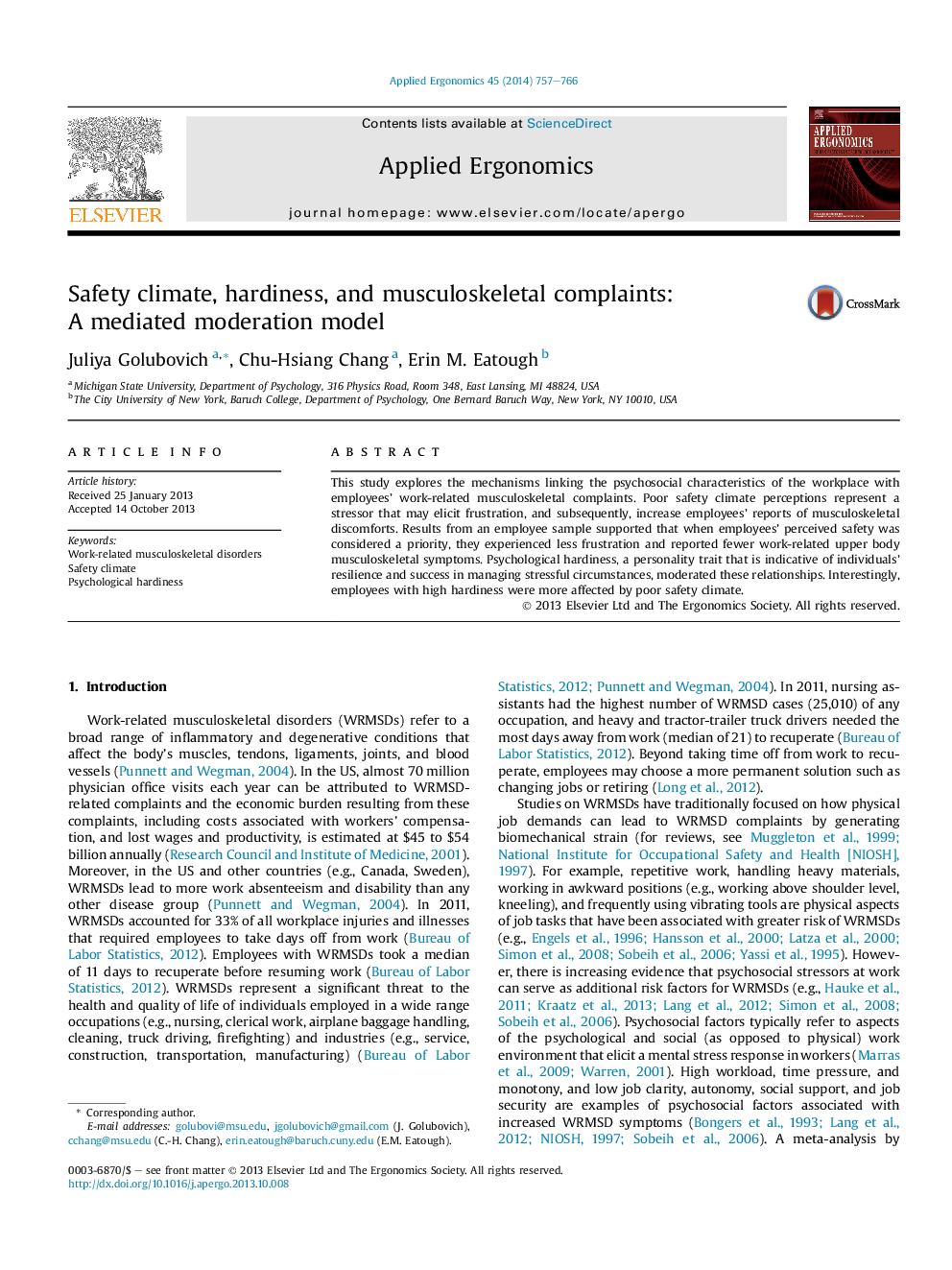| Article ID | Journal | Published Year | Pages | File Type |
|---|---|---|---|---|
| 551122 | Applied Ergonomics | 2014 | 10 Pages |
•Psychological safety climate was not directly related to WRMSD complaints.•Psychological safety climate was negatively related to frustration.•Frustration was positively related to WRMSD complaints.•Hardiness accentuated the psychological safety climate–frustration relationship.•Safety climate had an indirect effect on WRMSD complaints via frustration.
This study explores the mechanisms linking the psychosocial characteristics of the workplace with employees' work-related musculoskeletal complaints. Poor safety climate perceptions represent a stressor that may elicit frustration, and subsequently, increase employees' reports of musculoskeletal discomforts. Results from an employee sample supported that when employees' perceived safety was considered a priority, they experienced less frustration and reported fewer work-related upper body musculoskeletal symptoms. Psychological hardiness, a personality trait that is indicative of individuals' resilience and success in managing stressful circumstances, moderated these relationships. Interestingly, employees with high hardiness were more affected by poor safety climate.
